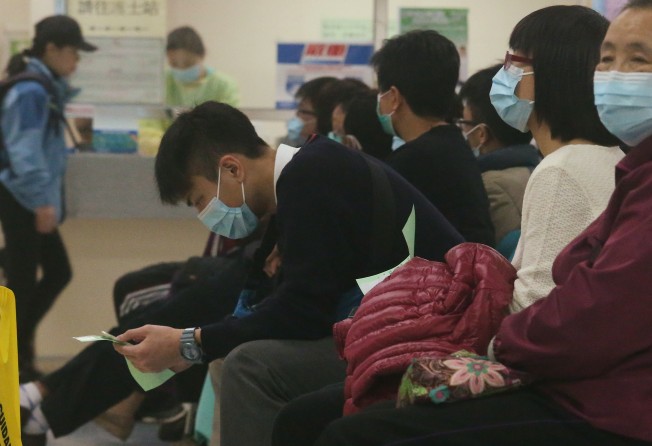Teamwork needed to meet Hong Kong's 21st-century health care challenges
Leung Pak-yin says a patient- and staff-centred structure will better serve a more complex society

There can be no denying that the challenges of providing quality medical care grow more complex every year. In the past year alone, the Hospital Authority has tackled such daunting tasks as managing the serious health risks posed by the Ebola virus, the Middle East respiratory syndrome and avian flu. We have also come under significant pressure due to a dramatic surge in service demand during the winter influenza season.
Hong Kong's ageing population, the rising incidence of chronic illnesses and the ongoing threat of emerging infections are placing greater demand on our services in an environment of escalating costs and manpower shortages. In response, we must focus on our human resources needs, increase the use of technology, and upgrade our equipment, infrastructure and facilities.
We are also moving forward with a number of capital works projects and other improvement programmes.
However, the strategic deployment of resources and streamlining of processes can only take us so far. On their own, they are not enough to sustain our delivery of quality public health care over the long term.
Traditional vertical models that emphasise top-heavy, prescriptive management can no longer bear the weight of modern health care pressures and demands, and we must rethink how we run our service. We must move towards more horizontal structures that capitalise on the benefits provided by cooperation, partnership and inclusivity.
We must focus on effective management of our relationships with all our stakeholders. The crucial question is, how can we ensure that these interactions support the sustainability of our services?
Both "engagement" and "empowerment" are vital. Effective engagement allows us to better understand the needs, priorities and concerns of our stakeholders. We must adapt to the changing environment and achieve good risk management by identifying potential issues at an early stage.
We must use open dialogue to build a common vision of the Hospital Authority's goals and highlight the mutually beneficial role that stakeholders can play in shaping and achieving our objectives.
Empowering stakeholders means providing them with the tools and opportunities to achieve these goals. For staff, this may include skills training, greater involvement in planning exercises and regular consultations. For patients, empowerment must include efforts to change attitudes to support self-care and disease management.
To address growing public expectations and demands, we will focus on tailored, targeted medical services that meet the needs of individual patients and make better use of limited resources. We will support individuals and community groups to take a larger role in managing health. This means providing the right knowledge and information.
We have engaged 180 patient groups in the community through our 39 Patient Resources Centres in different hospitals, covering over 20 different diseases and more than 20,000 patients and their carers. These groups establish mutual-help networks and peer-group support.
We are also reaching out as educators through initiatives such as Health InfoWorld. Our Smart Patient website is a one-stop online source of patient and disease-related information.
At the same time, we are improving access to health care information, amid public scrutiny of thorny issues such as patient waiting times and management of emergencies and incidents. We continue to take steps to improve our accountability.
We treat negative feedback seriously. Our system for handling complaints, feedback and suggestions gives objective and serious consideration to all comments and grievances. Our seven clusters are also all engaged in various programmes to strengthen local community ties.
With the support of the government and the Hospital Authority board, we will further empower our colleagues. They are at the front lines of many of our greatest challenges, and best placed to inform us where we are falling short, and how we can improve. We must work to erase traditional notions of "us" and "them" - between management and staff and among departments, divisions and clusters.
Engaging district councillors, professional organisations and non-governmental organisations and media partners can also help us win powerful advocates in our efforts to explain our objectives to local communities.
Our success depends on the support of all our stakeholders, empowered with the skills, attitudes and information needed to make a contribution to our overall health.
We are facing considerable challenges, but we should draw strength from the encouraging progress we have made. We will continue to build trust and support with our close partners.
Dr Leung Pak-yin is chief executive of the Hospital Authority. This is an excerpt from his keynote speech at the opening ceremony of the Hospital Authority Convention 2015